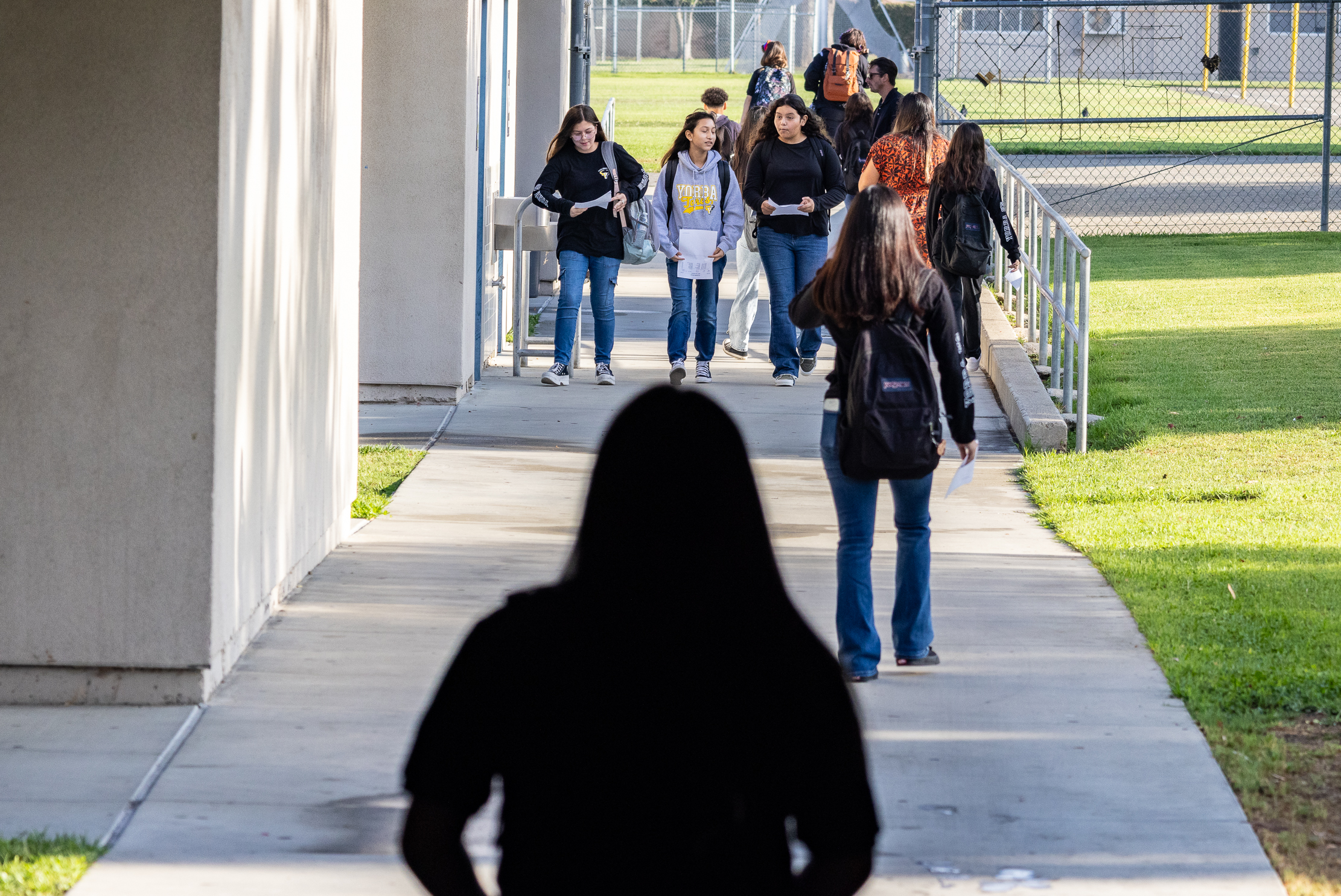As California students return to school, the debate over a new grading system aimed at eliminating biases in traditional grading continues across the state.
The new system, “Grading for Equity,” seeks to remove non-academic factors such as attendance, participation, and timely submission of assignments from students’ grades, focusing solely on mastery of content.
“It’s really trying to make the grade only represent what a student has learned about the course,” Joe Feldman, an author and former teacher who popularized the grading system, said in an episode of EpochTV’s “California Insider” show.
According to Feldman—who wrote “Grading for Equity: What It Is, Why It Matters, and How It Can Transform Schools and Classrooms”—traditional grading systems contain biases that do not accurately reflect a student’s mastery of the material, which equitable grading can address. For example, a student with a lower exam score might end up with the same final grade as a student with a higher exam score by earning higher grades in daily assignments or completing extra credit work.
“While [the non-academic factors] are important for students to learn how to do, we don’t want to include them in the grade, because it starts to warp the accuracy of the grade,” he said. “Students could have identical performance but get a different grade depending on which teacher they have.”
By excluding non-academic factors, Feldman said the system can better motivate students to engage with assignments meaningfully, rather than simply completing them mechanically.
However, Dublin Teachers Association Co-President Laurie Sargent argued that the equity grading system might not work as intended. She said that if assignments become optional or do not count toward the final grade, students are more likely to skip them altogether.
“Mr. Feldman’s concept is [that the students] can still do it and you can provide the feedback, but there’s just no grade attached to it,” Sargent, who’s also an eighth-grade English teacher at Dublin Unified School District in Alameda County, said in the episode.
“As wonderful as that sounds, I don’t know if we’re there yet, because there’s grades attached to it now, and they [still] don’t do their homework or read the feedback. They’re teenagers.”
The school district experimented with equity grading on a small scale during the 2021–22 and 2022–23 school years in grades 7–12 but has paused its initial plan to roll out a districtwide transition within two years, partly due to opposition from parents.
Feldman defends the equity system, saying assignments can sometimes obscure a student’s true level of knowledge, leaving issues unresolved.
“What was happening is that students were hiding that they didn’t know information, [and] they were concealing that by handing in homework because they got help [from parents or tutors] and doing extra credit,” he said.
Additionally, Dublin Unified Superintendent Chris Funk, who supports the equity system, said students’ grades are sometimes affected by factors unrelated to learning, such as forgetting to write their names on their papers.
“We’re giving the zero because they don’t have their first name, last name, the period and the date on it,” he said in the episode. “How does that reflect whether they did the work correctly?”
50 Percent Floor
Funk said the equity grading policy was not significantly different from the traditional one, focusing only on removing the zero score and implementing a 50 percent base score.
He added that while some teachers in the district were already practicing some of the changes, the new policy simply makes these practices more uniform and standardized.
Sangeetha Shanbhogue, a parent at Dublin High School, told “California Insider” that her children received a 50 percent base score on every test last year and were permitted to retake exams if their grades were below a C. Additionally, her children did not have homework.
“Since [her son] did not have practice, he didn’t learn because he didn’t know what he was doing wrong,” Shanbhogue said. “Especially for science subjects, where you have to spend some time outside of class trying to learn or practice.”
She said that not requiring homework could severely hinder students’ learning quality because they would miss out on practicing what they’ve learned, especially for students in higher grade levels.
“If you started at once at high school, when the stakes are high [as] they’re applying for college, it will have a big impact,” she said.
Besides introducing the base grade, the equity grading system also allows students who didn’t get a C to retake exams multiple times, which some argue could diminish their motivation to study.
In some instances, Sargent said, students might use their first attempt at a test to discover its content, as teachers often use the same exam for all retakes.
“I‘ll go in, I’ll see what the test is, and then I'll go back and study and do the retake,” she said. “So now we’ve just taught them to game the system.”
She added that while retaking exams allows students to revisit and correct their mistakes, it is also crucial to teach them to take responsibility for their work before they enter society.
“Maybe we do that with freshmen and sophomores or in the middle school levels, where the kids are still emerging, but by the time you’re a junior and a senior and in our AP classes, it doesn’t teach them accountability.”
Shanbhogue echoed this concern, saying that such practices have harmed her children’s motivation to study hard for exams.
Graduation Rate
On a larger scale, Sargent said the equity system will boost graduation rates, but at a cost.
“It’s going to elevate our graduation rates so that students that would normally fail classes will now pass, but they won’t have the skills ... that they need to back them up in the real world,” she said.
Moreover, higher graduation rates don’t necessarily translate to higher college admission rates, Shanbhogue said.
“The number of kids getting into UCs and CSUs has decreased, while the number of kids that are going to community colleges has increased. AP scores have also decreased over the last three years,” she said, referring to data from the school district.
According to the school’s profile, the four-year college placement rate decreased from 73.4 percent to 64.8 percent from the 2022–23 school year to 2023–24. In contrast, the two-year college placement rate increased from 21.5 percent to 24.2 percent, while placements to military and other schools rose from nearly 5 percent to 11 percent.
School data also show that in the 2022–23 school year, 184 students were accepted into the University of California, and 115 students were accepted into the California State University system. In the 2023–24 school year, 137 students were accepted into UC schools, and 106 were accepted into CSU.
Challenges
The Dublin Unified Board of Trustees voted to discontinue the equity grading program in July 2023.
During the board meeting, Funk also announced that the district is ending its relationship with Crescendo Group, the consultant firm led by Feldman. The firm had been assisting the district in developing the grading system.
According to the superintendent, 26 teachers participated in the pilot program, and 80 more were planning to join before the board paused it.
However, Funk said that more practice and research are needed because pilot program data were insufficient to determine whether the new system is effective, and he was disappointed that the board did not give it more time.
“The challenge that I have with some parents is when they come to a board meeting and they give one example, or they [talk] in broad stroke, saying the community is upset,” he said. “It got to a point where the board said, you know what, there’s enough pressure, we’re going to stop it.”
“The board listened to the parents, but 30 parents don’t constitute 5,000 parents,” he added.
The district’s director of communication, Chip Dehnert, told The Epoch Times in an email that while the district-backed effort was discontinued, teachers are still free to implement equity grading at their discretion. The board’s decision does not ban it.
Some other school districts that have implemented similar grading practices include Los Angeles Unified, Oakland Unified, Sacramento City Unified, Santa Ana Unified, and San Diego Unified.














